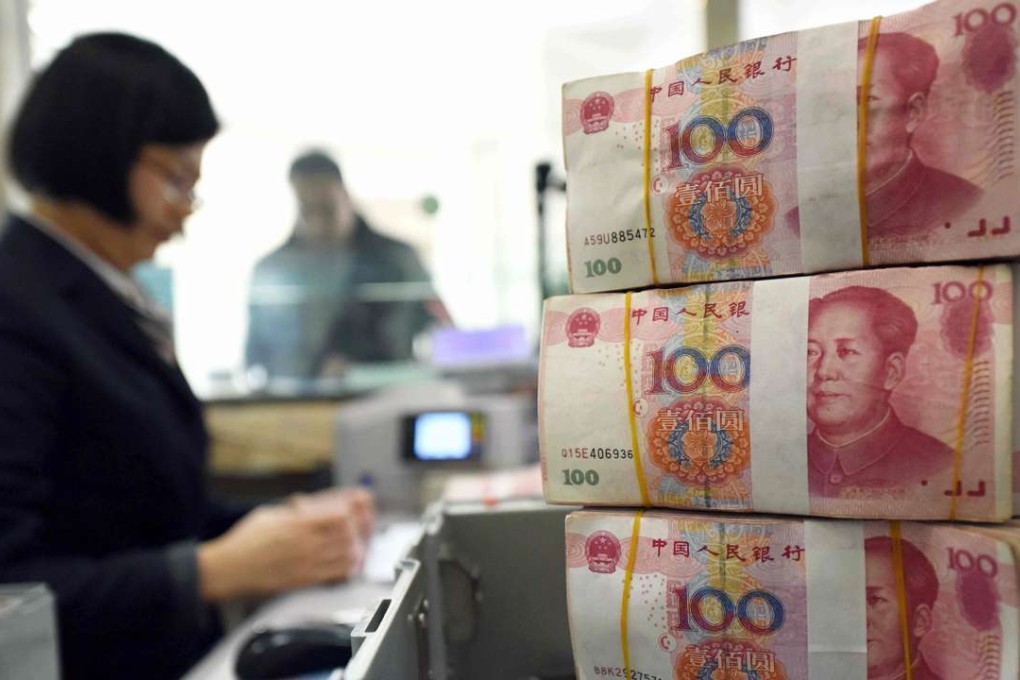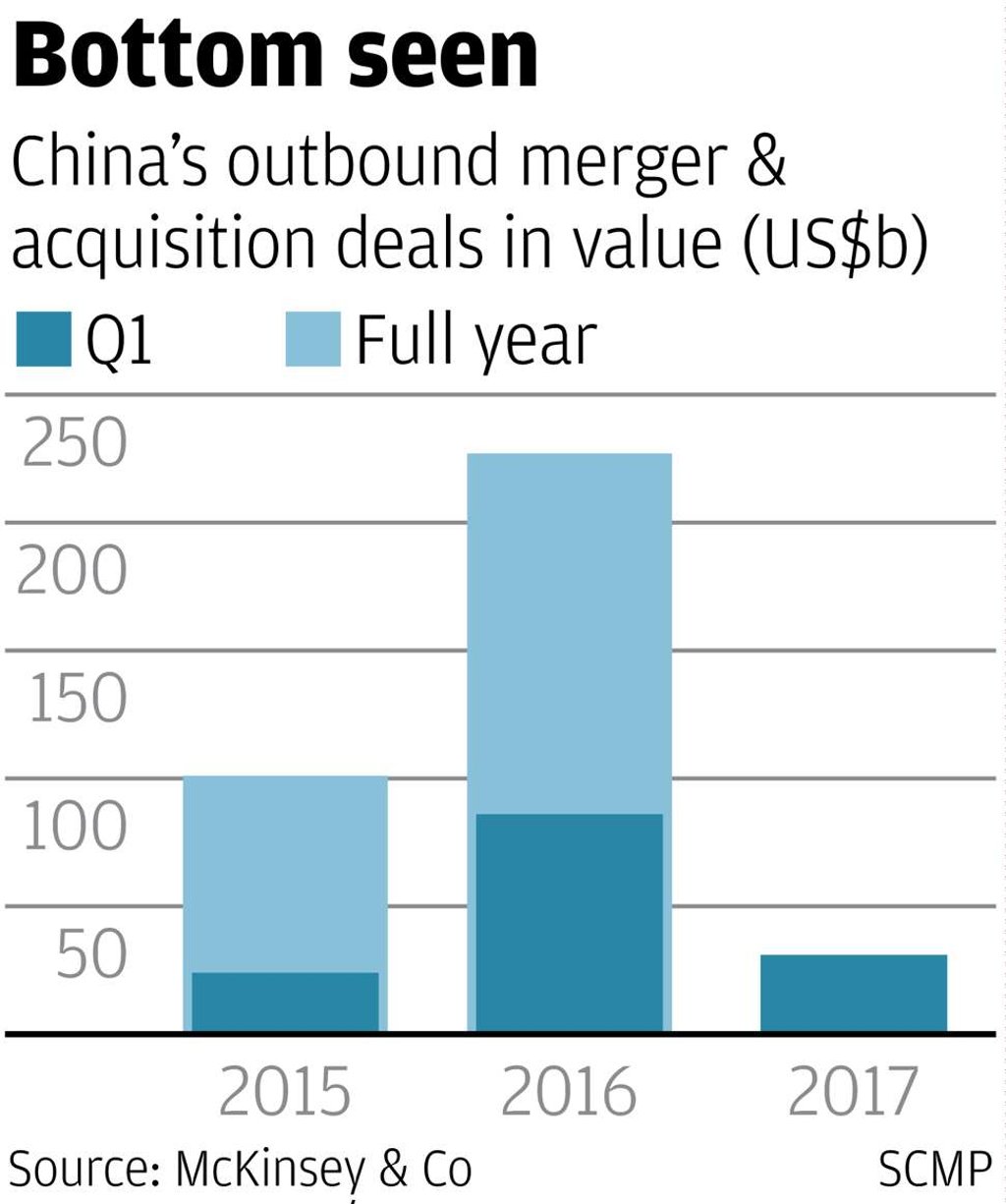China’s tough capital controls put the brakes on outbound deals
China’s overseas mergers and acquisitions activity plunged 64 per cent in the first quarter but should start to rebound soon, says McKinsey

China’s outbound mergers and acquisitions activity tumbled in the first quarter but is expected to bottom out soon amid an “irreversible” long-term growth trend, global consultancy McKinsey said on Wednesday.
In the first three months of this year, the value of China’s M&A activity abroad dropped to US$31 billion, down 64 per cent from a high of US$86 billion a year ago as many deals were thwarted by Beijing’s tough capital controls. Measures to stem capital flight have been tightened in recent months as companies and individuals attempted to hedge against a weakening yuan.
“While the concern over capital flight is valid, China today is not Japan in the 1980s; the majority of deals Chinese players are making are in pursuit of valid commercial goals and therefore it’s important to take the long view on exactly how successful they’ve been,” said David Cogman, a partner at McKinsey, in Shanghai on Wednesday.
While the concern over capital flight is valid, China today is not Japan in the 1980s
He expects policymakers to fine-tune foreign exchange policy in the next three to six months to make the capital controls more targeted to support deals with solid commercial purposes. The first quarter low is already “close to a trough”, Cogman added.

“The foreign exchange issue has significantly cooled off deal activities in the first quarter,” said Paul Gao, senior partner at McKinsey. “Despite the challenge, this may turn out to be a positive development as it will likely reduce the number of financial diversification deals as lots of these types of deals proved to be unsuccessful.”
The foreign exchange issue has significantly cooled off deal activities in the first quarter
He was referring to deals in which Chinese buyers take a minority stake in an overseas listed company, betting on the share price rising and dividend payouts. In this type of investment the buyer stays out of direct daily operations and does not build up synergy with the acquired firm.